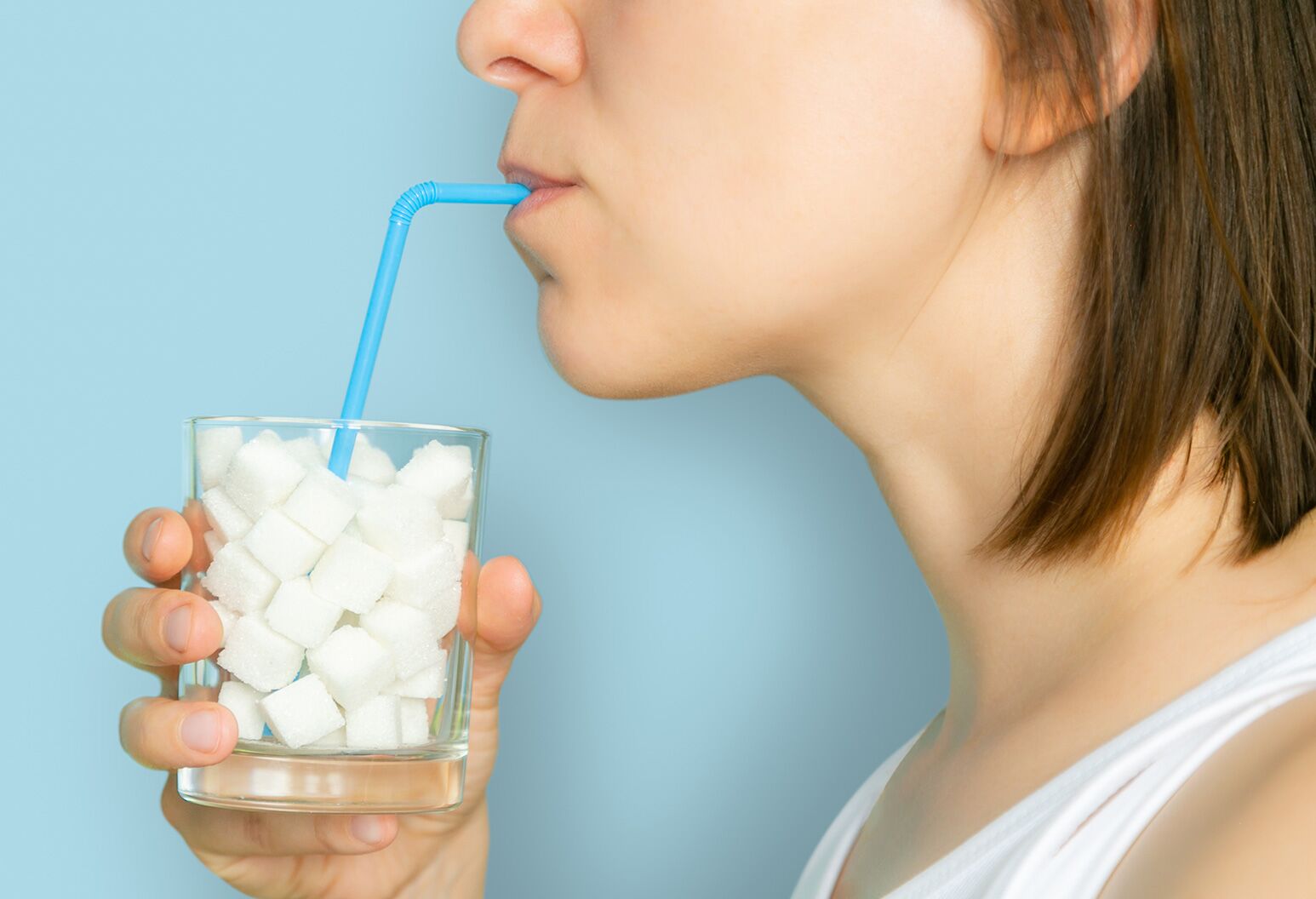healthy living/fitness
Balsamic Chicken And Jicama Slaw: A Perfect Match

A registered dietitian explains sugar cravings—and what you can do about them.
3 min read
It’s a common refrain: “I think I’m addicted to sugar.” For many, the struggle with sugar feels all-consuming, especially when cravings strike fast and hard. But is sugar actually addictive?
The short answer is no. Unlike substances classified as addictive, such as drugs or alcohol, sugar is something we need because glucose, a form of sugar, is essential fuel for our bodies and brains. But too much of it can make you feel sluggish or irritable, and lead to long-term health problems like heart disease, Type 2 diabetes, and even depression.
When we eat sugar, it triggers a release of dopamine, the neurotransmitter that lights up our brain’s reward center. This is the same system that rewards us for healthy, life-sustaining behaviors, like eating nourishing foods or connecting with others.
But sugar provides an outsized hit of dopamine, and that’s part of the problem. Foods high in added sugar, especially when paired with salt or fat (think cookies, chips, and ice cream), are designed to be hyper-palatable. These foods deliver a one-two punch of pleasure and convenience, making them easy to overconsume.
There’s more to sugar cravings than just brain chemistry. Cravings are often tied to unhealthy lifestyle habits like poor sleep, stress, or even dehydration. A night of inadequate rest can leave you reaching for a sugary coffee or pastry the next morning, as your body seeks quick energy. A sugar-laden breakfast can spike your blood sugar and set off a cycle of energy crashes and cravings throughout the day. Even a carb-heavy lunch can have you craving more junk.
There’s also the psychological pull of sugar as well. If you have a habit of reaching for a cookie on a stressful day, then your brain is programmed to need that “treat” to quell the stress. If you feel like you “have to” eat something sweet following a meal, then you will consistently need that satisfaction. And culturally, sugar is deeply ingrained in how we celebrate, a hallmark of birthdays and holidays. It’s easy to see how our cravings for sugar are often as much about our emotions as they are our biology.
So, what’s the solution? Eliminating sugar entirely isn’t realistic or necessary but managing the cravings is essential for health and well-being. My tips:
Limit added sugar
The World Health Organization recommends limiting added sugar to 25 grams for women and 36 grams for men per day for optimal health. Check nutrition labels and be mindful of “hidden” sugars in everyday items like yogurt, salad dressing, and bread.
Eat filling, balanced meals
High-protein, fiber-rich meals and snacks can stabilize blood sugar and help prevent cravings.
Be mindful of your body
Before feeding a sugar craving, check in with yourself. Are you genuinely hungry, or are you simply tired or stressed? Sometimes, a handful of nuts, a cup of tea, or even a glass of water can do the trick.
Snack smarter
Savoring a dessert is different from mindlessly snacking. Be intentional when sitting down for a slice of cake and really take your time enjoying it, instead of just grabbing a donut from the break room. You can also feed your sweet tooth with something a bit healthier than a candy bar, like dark chocolate, an apple sprinkled with cinnamon, or a banana with peanut butter.
Skip the artificial sweeteners
For those looking to replace sugar with artificial options like sucralose or stevia, I advise against it. Research suggests these substitutes may disrupt gut health and could have other unintended effects.
If steering clear of sugar feels like a struggle, it’s not your fault. Our food environment is saturated with added sugars, from packaged snacks to beverages, and the messaging around them often makes it even more irresistible. But knowledge is power and understanding the nature of sugar cravings can help you get ahead of them.
The Well is Northwell Health’s commitment to the future of health care. In this time of information overabundance, much of which is inaccurate, unhelpful, or even difficult to understand, Northwell Health is on a mission to make a difference as an honest, trusted, and caring partner. The site connects with consumers to provide them with personalized content that reduces their stress, makes them laugh, and ultimately feel more confident and capable on their healthcare journey.